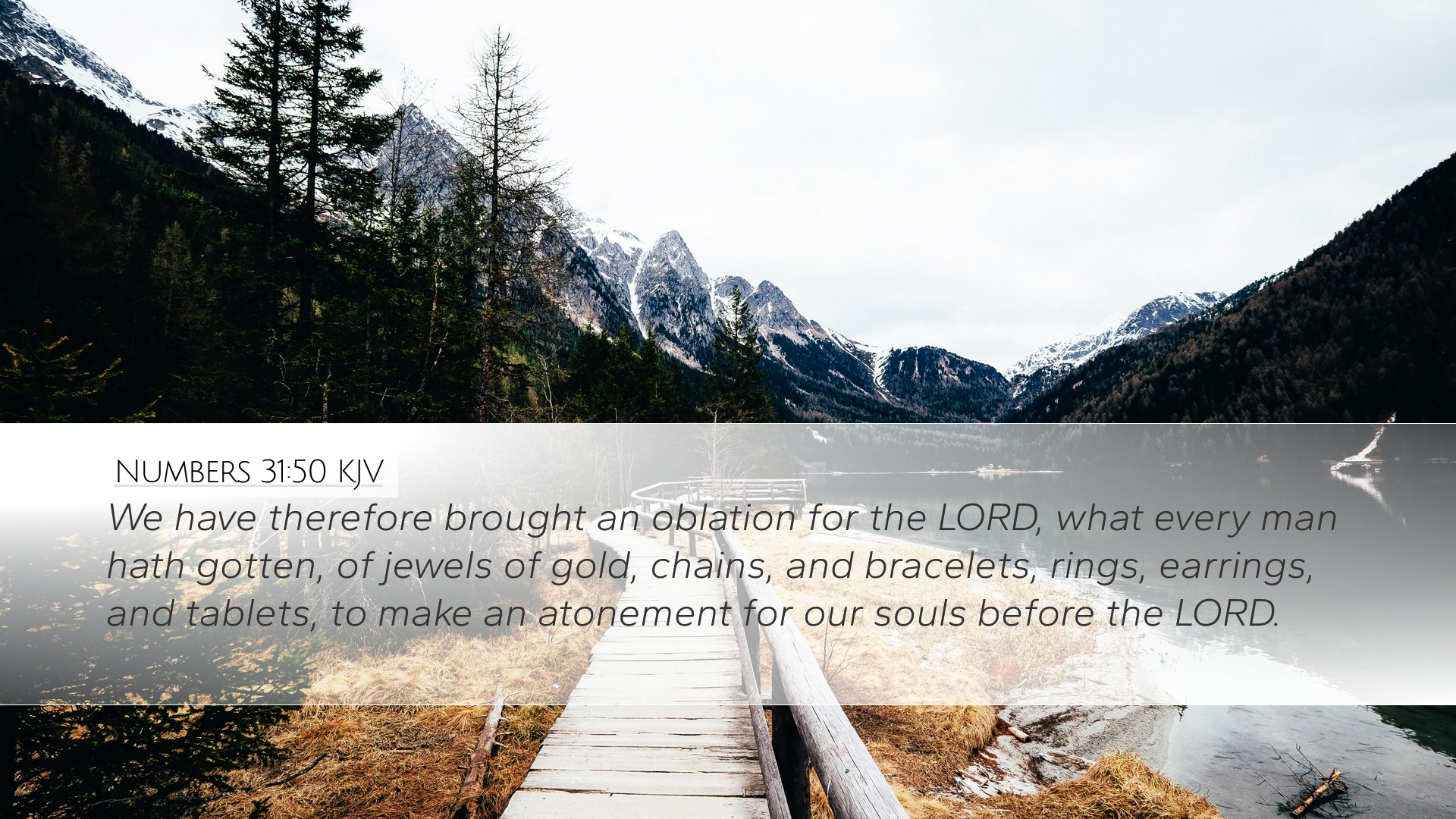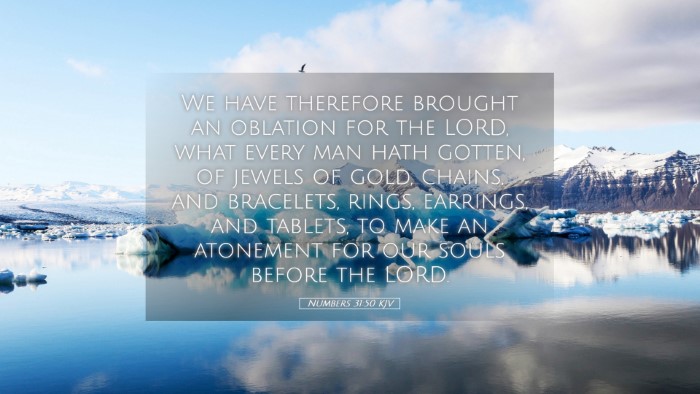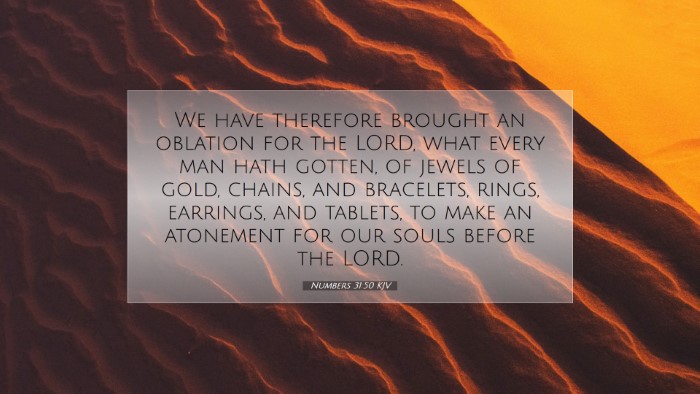Commentary on Numbers 31:50
The verse Numbers 31:50 reads:
"We have therefore brought an oblation for the Lord, what every man hath gotten, of jewels of gold, chains, and bracelets, rings, earrings, and tablets, to make an atonement for our souls before the Lord."
Contextual Overview
The Book of Numbers details the journey of the Israelites in the wilderness, portraying their struggles, worship, and obligations towards God. Chapter 31 depicts the aftermath of a battle against the Midianites, where the Israelites were commanded to exact judgment upon their foes due to their corrupting influence.
Exegesis of the Verse
In Numbers 31:50, after the victory over Midian, the Israelite military leaders present an offering to God. The context indicates this act was not only a demonstration of gratitude but also an acknowledgment of God's providence and a means of seeking atonement.
Military Victory and Divine Recognition
The military success showcased in this chapter is significant. Matthew Henry comments on the victory as "a testament to God’s guidance and support for His people", suggesting that the spoils of war were not merely possessions gained but blessings bestowed by God.
Oblation and Human Responsibility
Pastors and theologians have noted the nature of the offering. Albert Barnes observes that the presentation of gold and jewelry was a representation of "their wealth and resources being dedicated to God". It symbolizes a greater principle that all bounty ultimately belongs to God, and His people are stewards of His gifts.
Atonement and Sacrificial Act
Adam Clarke emphasizes the necessity of atonement in the old covenant system, noting that this act of bringing offerings was essential for maintaining right standing before God. He states that offerings represent the humble acknowledgment of sin and a desire for reconciliation with the divine.
Theological Implications
Numbers 31:50 provides rich theological implications for Christian doctrine, particularly in discussions of atonement, sacrifice, and the relationship between God and His people.
- Stewardship: The act of giving reflects a fundamental principle found throughout Scripture: everything we have is a gift from God, and returning a portion acknowledges His sovereignty and provision.
- Atonement: This offering signifies the people's recognition of their need for atonement—a theme that culminates in the New Testament with the perfect sacrifice of Christ.
- Collective Responsibility: The community comes together to offer, indicating both individual and corporate dimensions of faith and worship.
Applications for Today
For pastors and church leaders, Numbers 31:50 implores a reflection on how members today can respond to God’s faithfulness with gratitude and offerings. The concept of offering extends beyond monetary gifts; it encompasses time, talents, and our very lives.
Encouraging Generosity
Emphasizing a heart of generosity is crucial. The Israelites offered from what they had captured, which challenges today’s believers to give willingly from the abundance granted them by God.
Community Involvement in Worship
Encouraging a community atmosphere in worship where offerings are made together can deepen the sense of collective praise and acknowledgment of God’s provision.
Prayer and Reflection
This verse reminds believers to reflect on their relationship with God and consider what they might offer Him as a token of gratitude for the blessings they receive daily.
Conclusion
In Numbers 31:50, we witness an essential aspect of worship and relationship with God through the act of giving. The insights derived from public domain commentaries enhance our understanding of this Scripture, promoting a theological framework that underscores gratitude, community responsibility, and the necessity of atonement in the life of faith.


